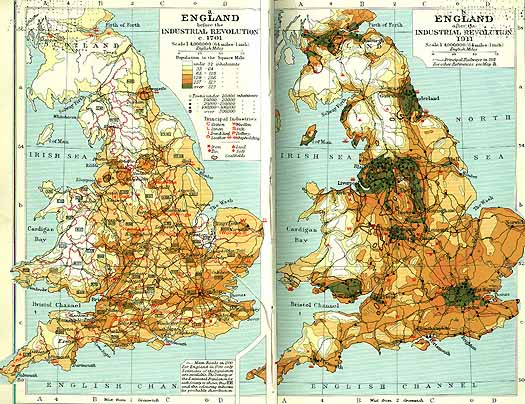 It is commonly known that the Industrial Revolution started in England and it is also commonly known that the revolution was possible because of new technologies that allowed for mass production. The question is why it began in England in the nineteenth century and not in another place or time. The Chinese had the same technology - Anderson tells us the Chinese had steel bridges, long before the English had them. And France had the same, if not better technology, yet the French took much longer to industrialize. We need therefore a broader answer and I am excited as to how clear the history 5 podcast brings the point home.
It is commonly known that the Industrial Revolution started in England and it is also commonly known that the revolution was possible because of new technologies that allowed for mass production. The question is why it began in England in the nineteenth century and not in another place or time. The Chinese had the same technology - Anderson tells us the Chinese had steel bridges, long before the English had them. And France had the same, if not better technology, yet the French took much longer to industrialize. We need therefore a broader answer and I am excited as to how clear the history 5 podcast brings the point home.If I have to recount this in my own words, I'd do it thus - and this is after one run of the lecture... What is needed for mass production is both a labor force to deliver and a market to buy. A sizeable labor force in England became available because of an agricultural revolution that preceded the industrial. By improving the organization and methods of agriculture, a much smaller force was needed to supply food for the population, thus freeing a large amount of workers for the factories. In addition, England was already a market economy, meaning, that it already had a division of labor going on and had the average Englishman, not produce for his own needs, but rather go out to the market to buy his needs and sell his specialty goods or services. In addition, the strata of English society were permeable and continuous, allowing for a climb on the social ladder to every individual. Consequently, the English already were consumers and therefore, a demand for the mass production on industrial society was also in place.
That was unique for England. In other places, less workforce could be freed from agriculture and less consumerism was in place, so that the market was less capable of growing demand.
No comments:
Post a Comment